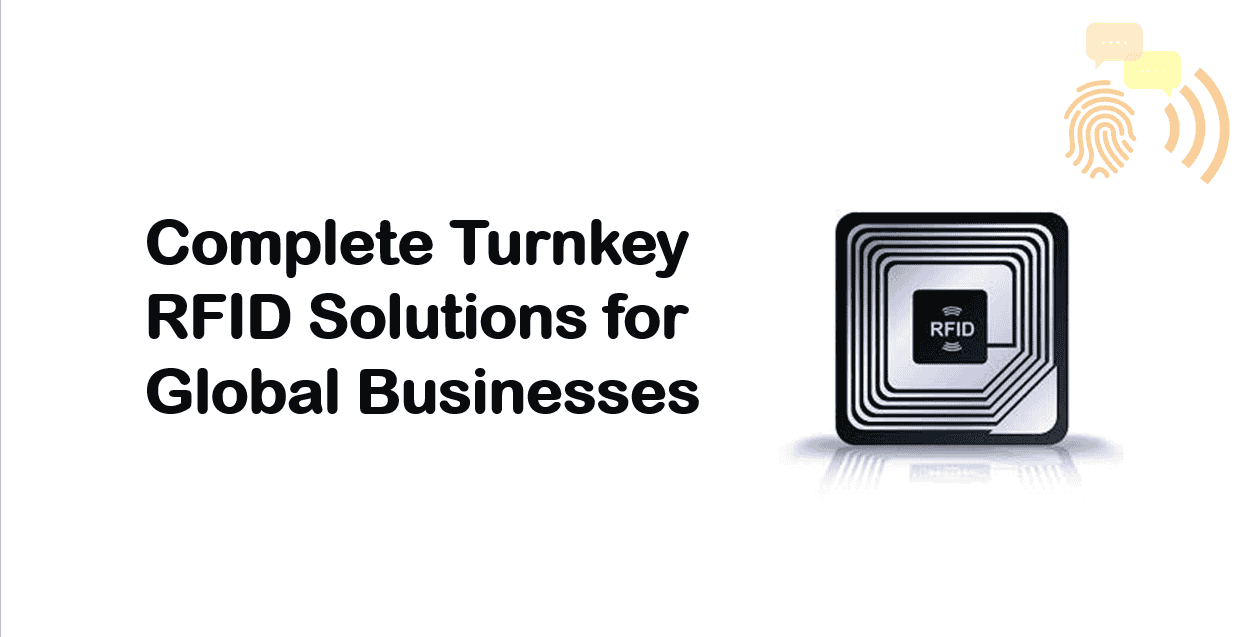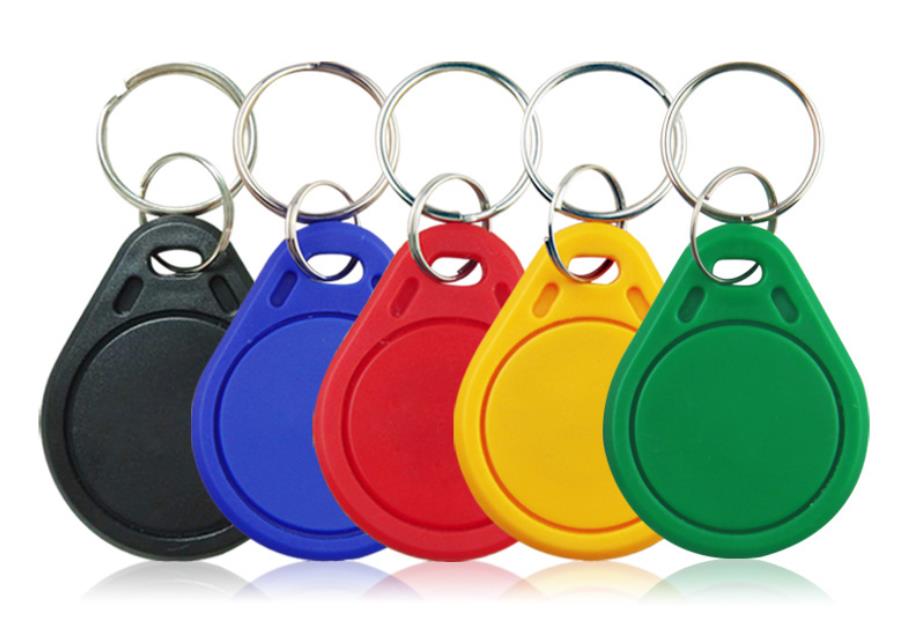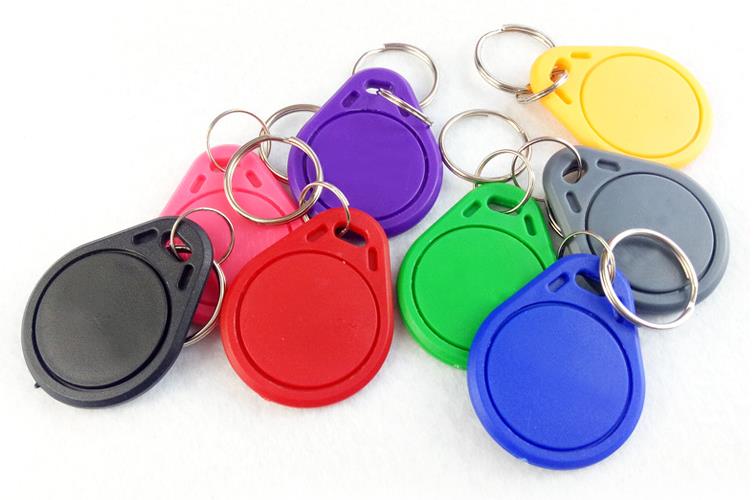Complete Turnkey RFID Solutions for Global Businesses

Complete Turnkey RFID Solutions for Global Businesses
In today’s fast-paced, interconnected world, businesses are constantly seeking ways to enhance operational efficiency, reduce costs, and improve their supply chain management. One of the most effective technologies in achieving these goals is Radio Frequency Identification (RFID). As the demand for streamlined operations increases, many organizations are turning to complete turnkey RFID solutions to optimize their processes. These comprehensive systems, offered by expert RFID solution providers, help businesses of all sizes achieve seamless automation, better inventory management, and improved data accuracy.
This article explores the importance of turnkey RFID solutions, the benefits of complete RFID systems, and how businesses can leverage these technologies to drive success on a global scale.
Table of Contents
- Introduction
- What Are Turnkey RFID Solutions?
- Key Components of Complete RFID Systems
- Benefits of Turnkey RFID Solutions for Global Businesses
- How to Choose the Right RFID Solution Provider
- Conclusion
What Are Turnkey RFID Solutions?
Turnkey RFID solutions are ready-to-use, fully integrated systems that are designed and implemented by RFID solution providers to meet the specific needs of businesses. These solutions typically involve the deployment of RFID hardware, software, and supporting infrastructure, allowing businesses to track assets, manage inventory, and monitor logistics with ease.
The term "turnkey" implies that the solution is "ready to go" once implemented—there’s no need for businesses to manage the intricacies of system design, integration, or customization on their own. RFID solution providers handle the entire project from consultation and design to installation, configuration, and ongoing support. This all-in-one approach ensures that businesses can quickly reap the benefits of RFID technology without the complexity of building a system from scratch.
Key Components of Complete RFID Systems
Complete RFID systems consist of several key components that work together to enable efficient tracking, monitoring, and management. The primary elements include:
-
RFID Tags: These small, cost-effective devices are attached to assets, products, or items. They store information about the object to which they are attached, allowing it to be uniquely identified and tracked. RFID tags come in two types: passive and active. Passive tags do not have their own power source and rely on the RFID reader to communicate, while active tags have a battery that allows them to transmit signals independently.
-
RFID Readers: These devices emit radio waves that interact with RFID tags, allowing them to read and capture the information stored on the tag. Readers can be stationary or mobile and are often installed at key checkpoints, such as warehouse entry/exit points, production lines, or retail locations.
-
Middleware Software: RFID middleware acts as the bridge between the RFID readers and the business's IT systems. It collects and processes data from the readers and then integrates it into the company's existing enterprise resource planning (ERP) or inventory management systems. This software is essential for analyzing data and generating actionable insights.
-
Enterprise Integration: A complete RFID system includes seamless integration with a company’s back-end IT infrastructure, such as inventory management systems, warehouse management systems (WMS), or supply chain software. This integration ensures that real-time data is captured, tracked, and available to decision-makers across the organization.
-
Cloud Solutions: Many businesses opt for cloud-based RFID systems that allow for remote monitoring, centralized data storage, and real-time analytics. Cloud-based solutions offer scalability, flexibility, and the ability to access data from anywhere in the world, making them ideal for global businesses.
Benefits of Turnkey RFID Solutions for Global Businesses
-
Enhanced Inventory Management: One of the most significant advantages of RFID solutions is the ability to track inventory in real-time. Businesses can monitor stock levels, automate restocking, and reduce instances of stockouts or overstocking. By improving inventory accuracy, companies can save time, reduce costs, and enhance customer satisfaction.
-
Increased Operational Efficiency: Complete RFID systems eliminate the need for manual data entry, reducing human error and speeding up processes. For example, warehouse workers can quickly scan RFID tags to update inventory levels, check product movement, or track goods through the supply chain. This increases productivity and enables faster decision-making.
-
Improved Data Accuracy: RFID systems provide precise and up-to-date information about assets, products, or goods. The real-time data ensures that businesses always have a clear picture of their inventory, reducing the chances of discrepancies and enabling better forecasting and planning.
-
Better Asset Tracking and Security: Whether it’s valuable equipment in a manufacturing facility or high-end products in a retail environment, RFID technology helps businesses track and secure their assets. RFID tags make it easier to locate lost or misplaced items, prevent theft, and ensure that goods are in the right place at the right time.
-
Global Scalability: For multinational companies, turnkey RFID solutions offer the flexibility to scale operations across different regions or countries. These systems are adaptable and can be customized to suit varying regional requirements, language preferences, and regulatory standards. RFID technology allows for the centralization of data, enabling global visibility into inventory and asset management.
-
Cost Savings: Over time, businesses can realize significant cost savings through the implementation of RFID systems. Reduced labor costs, lower stock wastage, and better resource utilization all contribute to a stronger bottom line. Moreover, the automation of manual processes helps businesses save on overhead and operational expenses.
-
Streamlined Compliance: In industries that are heavily regulated—such as pharmaceuticals, food production, or logistics—RFID systems help businesses maintain compliance with government regulations. With accurate tracking and monitoring, RFID systems enable companies to meet industry standards for traceability, reporting, and audits.
How to Choose the Right RFID Solution Provider
Selecting the right RFID solution provider is crucial for the success of any RFID implementation. When choosing an RFID provider, businesses should consider the following:
- Experience and Expertise: Look for providers with a proven track record in delivering successful turnkey RFID solutions, especially in industries relevant to your business.
- Customization Capabilities: Ensure that the provider can tailor the RFID system to your unique business needs, whether it’s for inventory management, asset tracking, or supply chain optimization.
- Global Support: As many businesses operate on a global scale, it’s important to choose an RFID solution provider that offers support across different countries and regions.
- Technology Partnerships: Opt for a provider that partners with leading RFID hardware and software manufacturers to ensure you get the best possible equipment and software solutions.
Conclusion
Turnkey RFID solutions are a game-changer for global businesses looking to optimize their operations. By choosing the right RFID solution providers, companies can benefit from complete RFID systems that improve inventory management, enhance operational efficiency, and streamline asset tracking. Whether it’s for improving supply chain visibility or ensuring regulatory compliance, RFID technology offers a wealth of benefits that can help businesses gain a competitive edge in the marketplace. As more companies adopt these systems, RFID technology will continue to revolutionize the way businesses operate and interact with their global supply chains.
Related Products
Here are some relevant stats and facts that you can integrate into your article on Complete Turnkey RFID Solutions for Global Businesses:
1. Market Growth of RFID Technology
- The global RFID market size was valued at $11.2 billion in 2022 and is expected to grow at a compound annual growth rate (CAGR) of 10.3% from 2023 to 2030. This growth is driven by increased demand for automation, inventory management, and supply chain visibility (Source: Grand View Research).
2. Adoption of RFID in Retail
- 85% of retailers believe that RFID helps them achieve more accurate inventory counts and improves customer satisfaction (Source: Zebra Technologies, 2021).
- Retailers who use RFID technology report an average inventory accuracy of 98% compared to just 63% without it (Source: Retail TouchPoints).
3. RFID for Asset Tracking
- RFID-based systems can reduce asset loss by up to 50% and significantly improve the management and traceability of assets (Source: Asset Tracking Solutions).
4. Efficiency Improvements in Warehousing
- RFID can reduce the time spent on inventory checks by 75%, leading to faster stocktaking and improved warehouse efficiency (Source: McKinsey & Company).
- In warehouses where RFID systems have been implemented, companies report an average 15-30% increase in operational efficiency (Source: Supply Chain 24/7).
5. Impact on Supply Chain Management
- 70% of companies report improved supply chain visibility and management after adopting RFID technology (Source: GS1).
6. Cost Reduction
- Businesses that use RFID technology typically see a 15-20% reduction in supply chain costs due to better inventory management and lower human error (Source: ChainLink Research).
7. Global RFID Adoption Rates
- By 2025, over 30 billion RFID tags are expected to be used worldwide across various industries (Source: IDTechEx).
8. Compliance Benefits
- RFID systems play a critical role in sectors with strict regulatory requirements, such as pharmaceuticals, where RFID can help ensure compliance with track-and-trace regulations. For instance, RFID-enabled drug traceability can help companies comply with global standards like the Drug Supply Chain Security Act (DSCSA) in the U.S.



